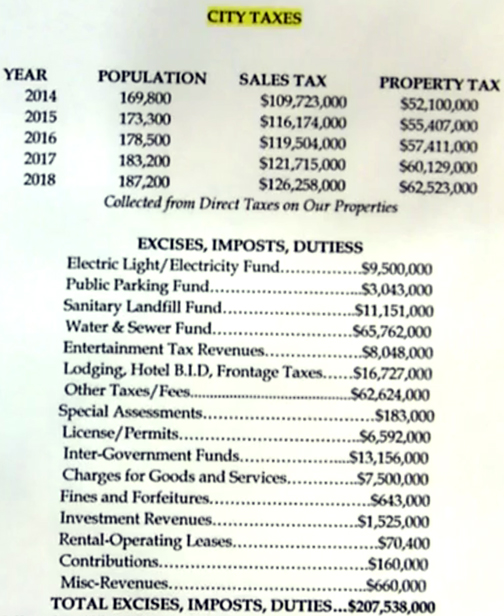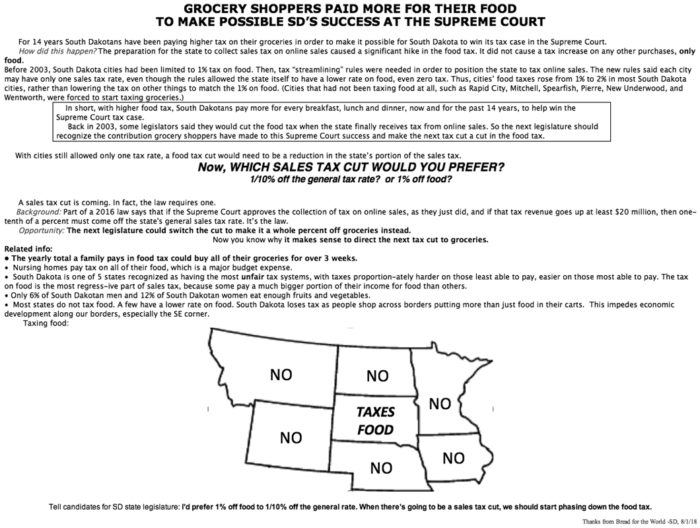GROCERY SHOPPERS PAID MORE FOR THEIR FOOD
TO MAKE POSSIBLE SD’S SUCCESS AT THE SUPREME COURT
For 14 years South Dakotans have been paying higher tax on their groceries in order to make it possible for South Dakota to win its tax case in the Supreme Court.
How did this happen? The preparation for the state to collect sales tax on online sales caused a significant hike in the food tax. It did not cause a tax increase on any other purchases, only food.
Before 2003, South Dakota cities had been limited to 1% tax on food. Then, tax “streamlining†rules were needed in order to position the state to tax online sales. The new rules said each city may have only one sales tax rate, even though the rules allowed the state itself to have a lower rate on food, even zero tax.
With the new rules, cities’ food taxes rose from 1% to 2% in most South Dakota cities, rather than lowering the tax on other things to match the 1% on food. Some cities had not been taxing on food at all, such as Rapid City, Mitchell, Spearfish, Pierre, New Underwood, and Wentworth. They were forced to start taxing groceries.
“The higher food tax has meant South Dakotans have been paying more for every breakfast, lunch and dinner for 14 years now to help win the Supreme Court case on collecting online sales tax,†says Cathy Brechtelsbauer, state coordinator for Bread for the World.
“We saw it coming back then. Some legislators told us they would cut the food tax when the state finally receives tax from online sales,†she remembers, “so the next legislature should recognize the contribution grocery shoppers have made to this Supreme Court success and make the next tax cut a cut in the food tax.â€
With cities still allowed only one tax rate, a food tax cut would need to be a reduction in the state’s portion of the sales tax.
News release, June 25, 2018
BREAD FOR THE WORLD -SOUTH DAKOTA
Cathy Brechtelsbauer, state coordinator, 605-335-6222, ryebread@breadrising.org
DaCola Note; This is one of the reasons I objected the half-cent increase in sales taxes to pay teachers. I found it counter productive to increase taxes on food to pay educators more. I would propose a total tax ban on food, not just a decrease. I know this has gone to the voters twice already and failed, but with the SCOTUS ruling I think this would be the perfect opportunity to end the food tax. I also think the state legislature should end exemptions on certain items that are not taxed now, like advertising. I have also argued that this won’t help main street businesses one iota. Even by taxing online items and essentially increasing the costs of those items so they can implement new accounting software, online shopping will still be less expensive due to volume, and more convenient because of choices. I also think the money raised by the state in new taxes will quickly be ate up by expanding government agencies that will be responsible in collecting these taxes. At the end of the day we have accomplished nothing but increasing prices for consumers to grow government. Thanks Marty Jackley and Deb Peters, for nothing.

